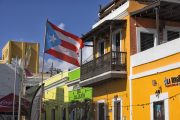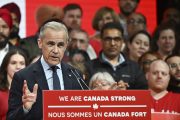When billionaire George Soros wrote two years ago that what the world needed now was “a new world architecture,” he was already laying plans for Bretton Woods II, April 8-11, 2011, to be held at the Mount Washington Hotel in Bretton Woods, New Hampshire (pictured, left).
Soros wrote:
While international cooperation on regulatory reform is difficult to achieve on a piecemeal basis, it may be attainable in a grand bargain that rearranges the entire financial order.
A new Bretton Woods conference, like the one that established the international financial architecture after World War II, is needed to establish new international rules…reconstitute the International Monetary Fund (IMF)…[and] to reform the currency system…
Claiming that the international monetary system “cannot survive in its present form,” Soros argues that it could and should be revamped so that American leadership would be “re-established…in a more acceptable form. ”
In the formal announcement of the meeting, sponsored and funded to the tune of some $50 million by Soros’ Institute for New Economic Thinking (INET), the stated purpose of bringing together “more than 200 academic, business and government policy leaders” is to move beyond the original Bretton Woods conference agreements in 1944 which established the IMF, the World Bank, and the United Nations and to “engage the larger European Union, as well as the emerging economies of Eastern Europe, Latin America, and Asia. ”
Such a meeting should surprise no one watching the current scene. Soros has made clear his economic and political philosophy, writing back in 1997 that “the main enemy of the open society, I believe, is no longer the communist but the capitalist threat. ” Writing for the Atlantic, Soros explained his position as an economic and political progressive:
Insofar as there is a dominant belief in our society today, it is a belief in the magic of the marketplace. The doctrine of Laissez-faire capitalism holds that the common good is best served by uninhibited pursuit of self-interest. [However] unless it is tempered by the recognition of a common interest that ought to take precedence over particular interests, our present system…is liable to break down [Emphasis added.].
Ironically (as Soros became fabulously wealthy as an international financial and currency speculator), he wrote: “Wealth does accumulate in the hands of its owners, and if there is no mechanism for redistribution, the inequities can become intolerable.” He then quoted Francis Bacon, the 16th century English philosopher: “Money is like muck, not good except that it be spread. ”
The best way to accomplish this, of course, is to promote international controls and regulations so that that nasty private wealth can be monitored, tracked, followed, and moved into places where it will do the most good.
Soros is bringing many stars of the Anglo-American universe to New Hampshire for the meeting, including Paul Volcker, former head of the Federal Reserve System; Jeffrey Sachs, Director of The Earth Institute; Joseph Stiglitz, holder of the Nobel Prize in Economics; and Rob Johnson, INET Executive Director.
The goals of the meeting have been widely explored and analyzed elsewhere on this website here and here, and reinforce the internationalists’ continuing perceived “need” for international cooperation through international agreements and sanctions.
The role of Soros in such machinations has been made out to be more than it is. When Media Research Center first wrote about the meeting, Dan Gainor concluded that “this is a Soros event from top to bottom.” That may well be the case for this particular meeting, but as Anthony Wile noted:
The one world conspiracy goes back at least 100 years in its modern incarnation and probably longer. Soros hasn’t been alive that long. He’s a Johnny-Come-Lately, relatively speaking.
Sure, Soros has a role to play in this monetary drama. But the Anglo-American elite operating mostly out of the one-square-mile City of London is evidently and obviously behind this currency evolution. The IMF, Soros [and others]…are instrumentalities, not initiators.
One of the beauties of the Internet is that this meeting, which had initially been clandestine and low key, was brought out into the open by Media Research Center and then picked up by the Wall Street Journal. In years past, meetings, conferences, and events such as this one (i.e., Jekyll Island in 1910, Bretton Woods in 1944) would have been brought to the public’s attention only after the fact. Today, the whole world is watching, and proving (if more proof be needed) that sunshine is the best disinfectant after all.




